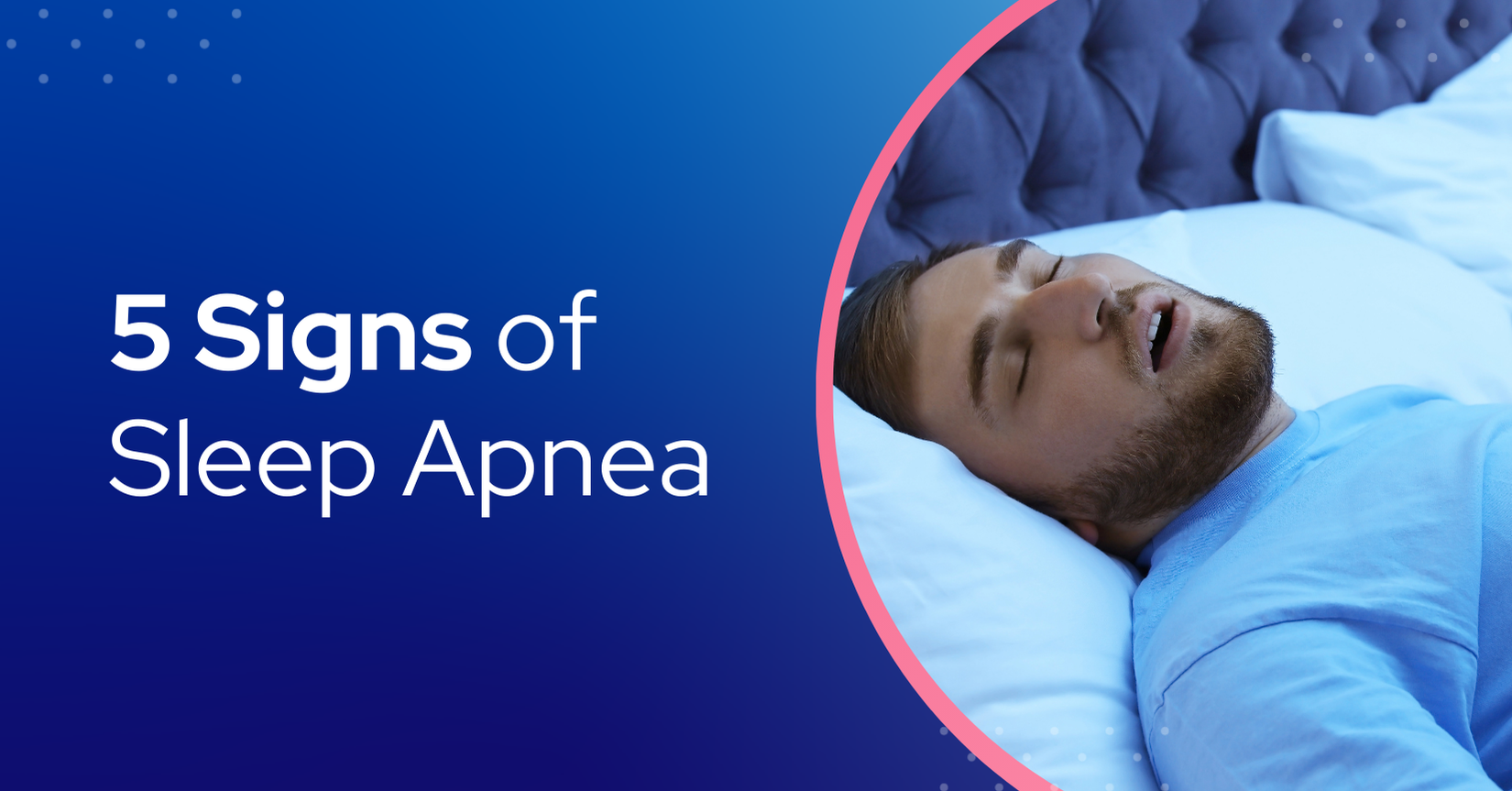Ever wake up feeling like you haven't slept a wink, even after a full night's rest? You're not alone. Millions of people suffer from sleep apnea, a common condition that disrupts your breathing during sleep. This can lead to a cascade of problems, impacting your health, energy levels, and daily life.
Here's the thing: sleep apnea often goes undiagnosed. But by recognizing the signs, you can take control of your sleep and your health.
Here are 5 red flags to watch out for:
- The Snore: Snoring is a classic sign of sleep apnea, especially if it's loud enough to disrupt your partner's sleep or vibrate the windows. However, not everyone who snores has sleep apnea. Pay attention to the quality of your sleep alongside the snoring – if you're still exhausted in the morning, further investigation might be needed. Consistent snoring may be common, but it's typically not "normal" and oftentimes a sign of sleep apnea or a sleep disorder.
- Sleep Witness Reports: Do you gasp for air or experience pauses in breathing during sleep? A bed partner might notice these episodes before you do. These pauses can last for several seconds and can be quite frightening to witness.
- The Daytime Drag: Excessive daytime sleepiness (EDS) is a hallmark symptom of sleep apnea. You might feel constantly tired, even after a good night's sleep according to your sleep tracker. This fatigue can creep up on you throughout the day, making it difficult to concentrate at work, maintain focus while driving, or even keep your eyelids from drooping during social interactions.
- Morning Grumps: Waking up with a dry mouth, sore throat, or headache? These can all be linked to sleep apnea's disruption of your sleep cycle. Because your body isn't getting the oxygen it needs during sleep apnea episodes, you might subconsciously breathe through your mouth more often. This chronic mouth breathing can dry out your throat and irritate the tissues, leading to discomfort upon waking.
- Restless Nights: Frequent awakenings or difficulty staying asleep are common with sleep apnea. You might toss and turn all night without ever feeling truly rested. These micro-awakenings, which you might not even consciously remember, disrupt the natural sleep cycle and leave you feeling unrefreshed in the morning. You might also experience restless leg syndrome, a tingling or crawling sensation in the legs that can make it difficult to fall asleep or stay asleep.
If you experience several of these signs, it's crucial to talk to your doctor. Early diagnosis and treatment can significantly improve your sleep quality and overall health.
Spot Pal: A Tool to Improve Sleep Habits
While a doctor's diagnosis is essential, there are tools available to help you improve your sleep habits at home. Spot Pal is a unique tongue training appliance designed to promote proper tongue placement. This not only improves oral health and function but can also play a role in sleep quality.
By gently guiding your tongue to rest in the correct position on the roof of your mouth, Spot Pal helps maximize and condition habitual breathing through the nose. This promotes a closed mouth posture, allowing air to be filtered through the nasal cavity for optimal breathing during sleep.
Remember, a good night's sleep is vital for your physical and mental wellbeing. Don't ignore the signs of sleep apnea. Take charge of your sleep health and wake up feeling refreshed!

Share:
How Breathing and your Airway Affects Your Fitness
5 Tongue Exercises for Clear Communication